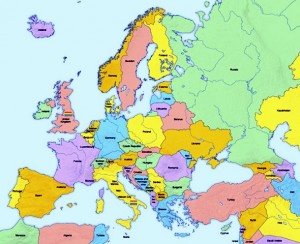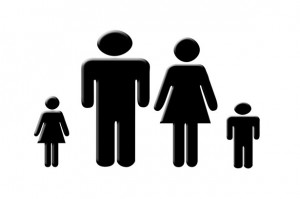The Biden-Harris Administration should be congratulated for changing and expanding the rules about the Child Tax Credit (CTC): eligible parents will now receive actual payments to support their children, as opposed to claiming a one-time credit on their taxes during tax season. This change has come about as part of the COVID-19 relief bill, which Biden signed into law in March.
 In addition, however, the CTC is now fully refundable, which is highly significant. A report by CBS News notes that this “means that families who don’t owe federal tax can get the credit either as a tax refund or a monthly cash payment. Prior to that change, some families who didn’t owe taxes were unable to claim the benefit, making the program most of help to middle-income families.”
In addition, however, the CTC is now fully refundable, which is highly significant. A report by CBS News notes that this “means that families who don’t owe federal tax can get the credit either as a tax refund or a monthly cash payment. Prior to that change, some families who didn’t owe taxes were unable to claim the benefit, making the program most of help to middle-income families.”
What is often left out of the coverage about this significant measure – which will cut the childhood poverty rate in half – is that most of our sister nations have had a similar plan in place for years, if not decades.  The “universal child benefit” or “child allowance” – a basic income paid only to families with children – is routine, as of 2012, in at least these countries: Austria, Denmark, Finland, France, Germany, Ireland, Luxembourg, Netherlands, Norway, Sweden, and the UK (although the UK’s benefit is no longer “universal” because of recent conservative government actions). Each country pays out the money slightly differently and in varying amounts.
The “universal child benefit” or “child allowance” – a basic income paid only to families with children – is routine, as of 2012, in at least these countries: Austria, Denmark, Finland, France, Germany, Ireland, Luxembourg, Netherlands, Norway, Sweden, and the UK (although the UK’s benefit is no longer “universal” because of recent conservative government actions). Each country pays out the money slightly differently and in varying amounts.
Bottom line: this policy is highly effective! As reported in Vox, researchers in the UK found that “the benefit and tax credit increases from 1997 to 2005 caused incomes for the bottom 10 percent of households to grow 20 percent.” Furthermore, “these child payments programs that put more cash in the hands of families with children can dramatically help those children later on in life, by boosting their test scores, making them healthier, and promoting higher earnings once they start working.”
As might be expected, the conservative argument in the US against such payments go something like this. 1) “Even if [cash payments] cut poverty in the short-term, they will undermine social mobility over the longer term, not least by disincentivizing paid employment among parents.” 2) They “will do little to advance, and may even inhibit, intergenerational upwards mobility.”
According to the Brookings Institution, both of these arguments – along with “slippery-slope arguments about universal basic income” – are completely erroneous.  Rather, there is compelling evidence “that cash transfers can be pro-mobility policies in themselves. In which case, giving cash to families with children will both reduce child poverty today and increase mobility out of poverty tomorrow” (italics in original).
Rather, there is compelling evidence “that cash transfers can be pro-mobility policies in themselves. In which case, giving cash to families with children will both reduce child poverty today and increase mobility out of poverty tomorrow” (italics in original).
Politicians, commentators, journalists and others in the US with voices that are heard by the American people must not only highlight this change in American policy but also the success that similar programs have had around the world. The implication that the CTC changes/improvements are a novel American “innovation” not only perpetuates our dangerous arrogance and hubris but also obscures, yet again, the many ways that we can learn from our European and other advanced sister nations.
Journalists:  keep your eyes on other advanced democracies when covering progressive policies emerging and being proposed on the American scene. Point out the success of such policies. Do not fall into the trap of letting right-wing politicians and commentators call these countries “socialist” and/or “too expensive” or “disincentivizing.”
keep your eyes on other advanced democracies when covering progressive policies emerging and being proposed on the American scene. Point out the success of such policies. Do not fall into the trap of letting right-wing politicians and commentators call these countries “socialist” and/or “too expensive” or “disincentivizing.”
Politicians: know the facts – and get them out to the American people, the voters who put you in office! Refute misinformation and disinformation. Do not be afraid of looking to other advanced democracies for ideas for improving our lives.
Finally, to all, do not be swayed by the so-called “homogeneity argument.”  As we pointed out earlier, the longstanding conservative argument that our large, diverse society does not lend itself to so-called “socialist” programs that might work in countries with more homogeneous (read: “mainly white”) populations – does not hold water. If our nation is to survive, and if our people are to thrive, we must rid ourselves of old, well-worn “myths” and find comfort in the fact that progressive measures around the world really work to reduce poverty and make people’s lives considerably better.
As we pointed out earlier, the longstanding conservative argument that our large, diverse society does not lend itself to so-called “socialist” programs that might work in countries with more homogeneous (read: “mainly white”) populations – does not hold water. If our nation is to survive, and if our people are to thrive, we must rid ourselves of old, well-worn “myths” and find comfort in the fact that progressive measures around the world really work to reduce poverty and make people’s lives considerably better.
